Be ready for conflict











Germany | Saeed Abedini was released last week after more than three years in an Iranian prison. The pastor from Idaho planned a reunion in the U.S. with his wife, Naghmeh, and their children after a debriefing and medical assessment at a U.S. Air Force Base in Germany.

His freedom, part of a prisoner exchange with Iran following that nation’s nuclear disarmament agreement with the U.S. was announced January 16.
“We are ready to welcome him home,” Naghmeh said in a January 17 interview with FOX News, noting that the couple’s young children were making welcome home signs.
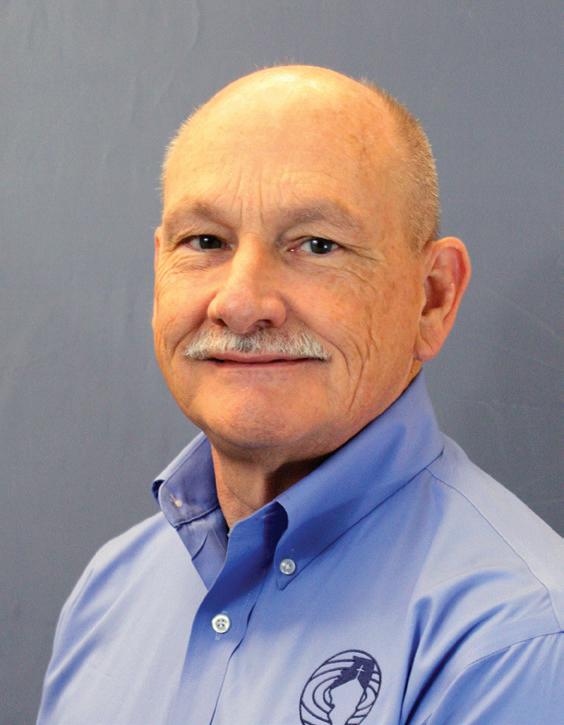
Because you know it’s coming.
Sylvan Knobloch
16
“…While spiritual growth is very important to tens of millions, the language and terminology surrounding discipleship seems to be undergoing a change, with other phrases coming to be used more frequently than the term ‘discipleship’ itself.”
– Barna.org
Christians: Has “discipleship” lost its meaning?
When asked what words or phrases describe the process of growing spiritually, a sample of practicing and non-practicing Christians placed “discipleship” fourth on the list:
Becoming more Christ-like
Spiritual growth
Spiritual journey
Discipleship
Spiritual maturation
Church: Going solo
Of Christians who say spiritual growth is very or somewhat important, the highest percentage would rather grow on their own.

Giving by IBSA churches as of 1/15/16
– Barna.org
$140,568
Budget Goal: $242,308
Received to date in 2015: $227,341
2016 Goal: $6.2 Million
Editor - Eric Reed
Contributing Editor - Lisa Sergent
Graphic Designer - Kris Kell
Editorial Contributor - Meredith Flynn
Administrative Assistant - Andrea Hammond
For questions about subscriptions, articles, or upcoming events, contact the Illinois Baptist at (217) 391-3110 or IllinoisBaptist@IBSA.org
The Illinois Baptist is seeking news from IBSA churches. E-mail us at IllinoisBaptist@IBSA.org to tell us about special events and new ministry staff.

POSTMASTER: The Illinois Baptist is owned and published every three weeks by the Illinois Baptist State Association, 3085 Stevenson Drive, Springfield, Illinois 62703-4440. Subscriptions are free to Illinois Baptists. Subscribe online at IBSA.org
I’m writing this the day after watching President Obama’s final State of the Union Address. After almost an hour of evidence and persuasion, the President neared the end of his address by declaring, “And that’s why I stand here, as confident as I have ever been, that the state of our Union is strong.”
A few minutes later, South Carolina Governor Nikki Haley delivered the Republican response, acknowledging that President Obama “spoke eloquently about grand things,” and that “he is at his best when he does that.” Then she quickly added, “Unfortunately, the President’s record has often fallen short of his soaring words.” She went on to describe what she called a weak economy, a crushing national debt, an ineffective healthcare plan, chaotic unrest in many cities, and “the most dangerous terrorist threat our nation has seen since September 11th.”
And so viewers were left to wonder which facts to believe, which leader to trust, and which picture of America is most accurate.
I understand the dilemma, though. Here at IBSA, we are at the time of year when we cumulate and analyze data from almost a thousand churches’ Annual Church Profiles (ACPs).
Looking at some measurements, the state of our mission here in Illinois appears strong, at least compared to the previous year. The number of new church plants rebounded from 7 in 2014 to 22 in 2015. Cooperative Program missions giving was up 1.5% in 2015, and Mission Illinois Offering giving was up more than 10%. Mission trip participation remained strong at just under 24,000 volunteers.
But other measurements might produce a different picture. Baptisms reported by IBSA churches in 2015 are down from 2013 for the second straight year, and overall worship attendance and Bible study participation were flat to down as well.
My primary concern is that, in total, our churches’ statewide, cumulative impact on lostness in Illinois is not growing, at least not numerically.
President Obama quipped near the beginning of his address that he would try to be brief, because he knew there were several in Congress who were anxious to get back to Iowa (to campaign for the 2016 Presidential election). His joke underscored the reality that, whatever you may think about the current state of things, the more important issue is where we go from here.
To advance our mission here in Illinois, I would challenge us toward two primary imperatives—evangelism and leadership development.
I wrote recently about five actions in churches that, statistically speaking, most often result in people coming to faith in Christ. They are an evangelistic prayer strategy, Vacation Bible School, witness training, outreach events, and starting intentional new groups. If your church could use some help in these areas, our IBSA staff would love to assist.
I would also challenge us all to develop leaders more intentionally in our churches. At this month’s Illinois Leadership Summit, more than 200 church leaders are gathering at the IBSA Building in Springfield to explore what it means to “lead self, lead followers, lead leaders, and lead organizations” more effectively. Even if you miss the Summit, our IBSA staff will welcome the opportunity to help you and your church leaders with an intentional leadership development process.
In many ways, the state of our churches’ mission here in Illinois is still strong. But to keep it that way, and to advance the gospel into the lostness of Illinois, we must recommit to the important work of evangelism and leadership development.

Nate Adams is executive director of the Illinois Baptist State Association. Respond at IllinoisBaptist@IBSA.org.

Whatever the current state of things, the more important issue is where we go from here.
The news of Abedini’s release, along with three other imprisoned Americans, spread in much the same way prayer requests for him have been shared over the past three years. Tweets and Facebook posts trumpeted the good news:
“It is confirmed: Saeed is released from Iranian prison,” Naghmeh tweeted on January 16. The next day, she posted on Facebook a photo of the family at a Disney theme park, with a large headline: Saeed is free!
Leaders who have long called for the pastor’s release, including Southern Baptist ethicist Russell Moore, were quick to respond to the news. “Praise God,” he posted.
“The prayers of the Body of Christ all over the world have been answered,” Moore, president of the Ethics and Religious Liberty Commission, said later in a statement released by the ERLC. “This day of celebration should remind us to pray and work all the more for the multitudes still persecuted for their faith all over the world, including in Iran. We hope and long for the day when Iran, and nations like it, are free from those who wish to enslave the conscience at the point of a sword.”
Abedini was serving an eight-year sentence after being arrested in 2012. The pastor, who was raised in Iran and later became an American citizen, had organized Christian house churches in the Muslim country.
The ERLC gave Abedini a religious liberty award in 2014, which his wife accepted on his behalf at the Southern Baptist Convention’s annual meeting in Baltimore. Naghmeh returned to the SBC in 2015, where pastors prayed for her family and her husband’s release during the annual Pastors’ Conference.

During much of his imprisonment, Naghmeh advocated publicly for Saeed, organizing prayer vigils for him and sharing updates on social media. Late last year, though, she stepped back from the public campaign after e-mails she sent to supporters were leaked. The messages noted “physical, emotional, psychological and sexual abuse (through Saeed’s addiction to pornography)” that had marked the couple’s marriage. After her husband’s release, Naghmeh confirmed to the Washington Post that the abuse had started early in their marriage and grew worse during Saeed’s imprisonment.
“When he gets home, we can address the serious issues that have happened and continued,” she said. Naghmeh also told Washington Post religion reporter Sarah Pulliam Bailey that it’s unclear whether her husband will continue to be a pastor.
“I think he would have to deal with a lot of issues,” she said. “There will need to be a time of healing for him and his family.” Evangelist Franklin Graham is “coming alongside our family through the next steps of the difficult journey ahead,” Naghmeh posted on Facebook January 20.
The American Center for Law and Justice, who had lobbied extensively for Abedini’s release, credited God’s intervention for his freedom. “We want to rejoice that the Lord has set these individuals free,” said Chief Counsel Jordan Sekulow
“At the end of the day, this was a move of God, because so many circumstances had to line up correctly for this to happen, and it did. And that’s not humans doing that; that is the Lord and we were just instruments to do our part.”
– With reporting from Baptist Press
The director of an orphanage and six others were among 28 people killed in an attack by Al Qaeda-linked militants in Burkina Faso. American Michael Riddering and his wife, Amy, originally from Florida, had served with the missions group Sheltering Wings in the West African nation since 2011. The couple sold all their possessions in order to go to the mission field and care for 400 orphans. Riddering was in the capital city to meet up with a visiting missions team when the attack occurred. The other six people killed were Canadians on three-week mission trip. Also that day, two missionaries from Australia were kidnapped.
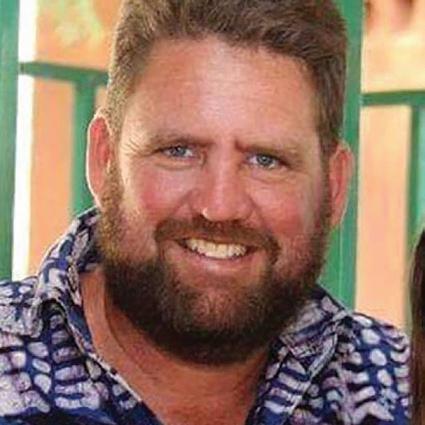
More than 7,000 Christians were killed for their faith in 2015, making it the worst year for persecution of believers. Open Doors reports the number more than doubled the 3,000 counted in 2014, making it “the most violent and sustained attack on the Christian faith in modern history,” said CEO David Curry. North Korea was the number one persecuting country, followed by Iran, Eritrea, Syria (attributed mostly to ISIS), and Pakistan.
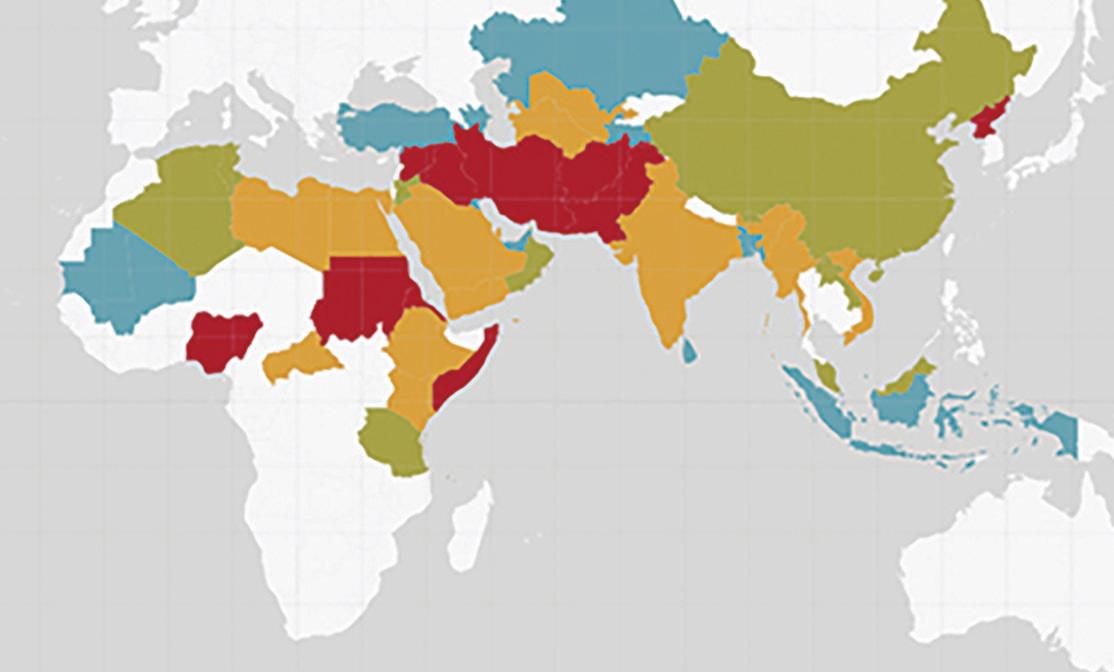
Although Nigeria ranked 12th, the Boko Haram sect which controls most of the country reportedly killed more Christians than any other terrorist group.
– Christian Post, Open Doors




Get breaking news in The Briefing online, posted every Tuesday at www.ib2news.org.


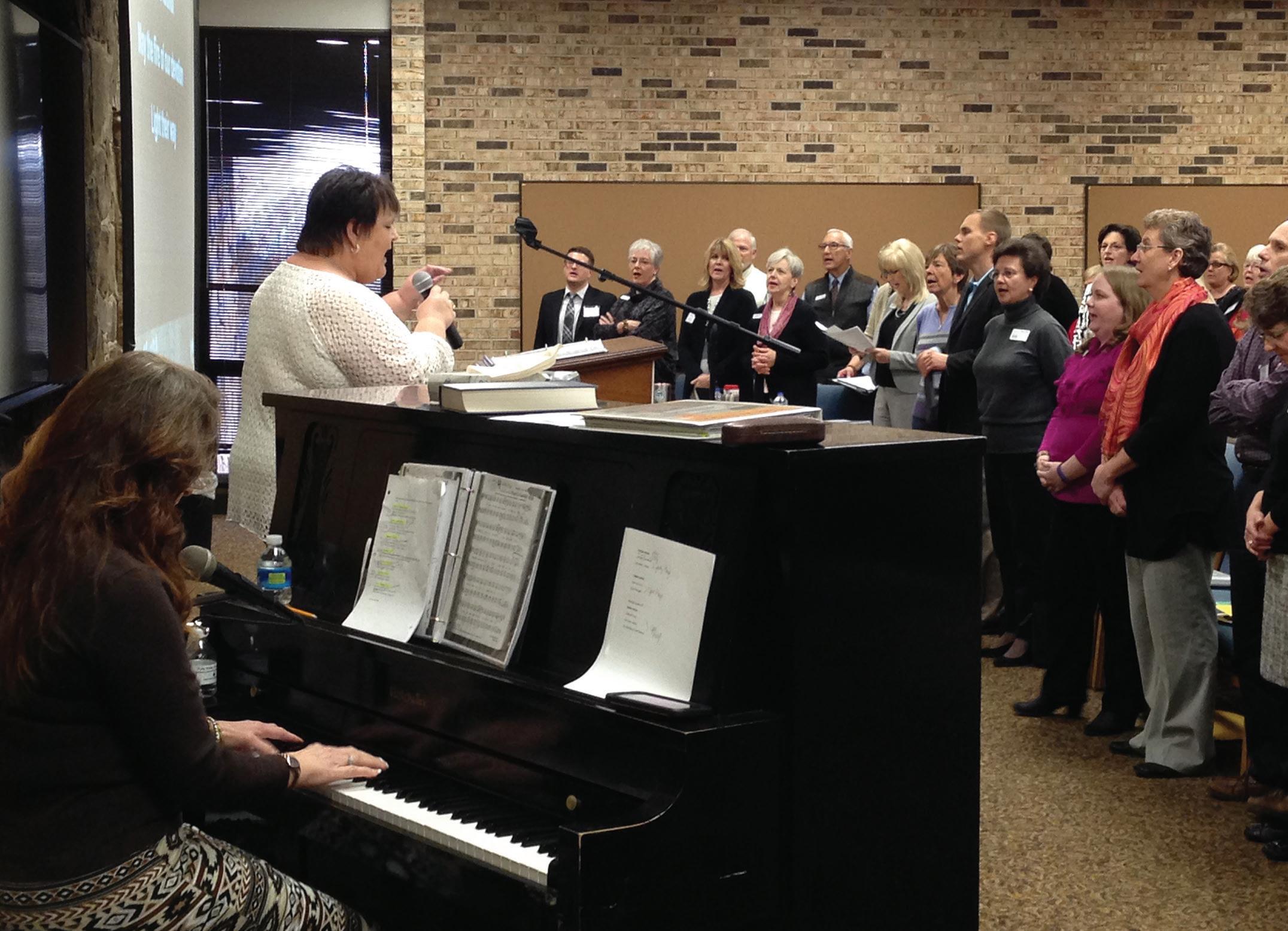
Troy | Pastor Tim Lewis will serve as the North American Mission Board’s ambassador to fellow pastors in Illinois.
In the role, Lewis, pastor of Bethel Baptist in Troy, will express appreciation to pastors from NAMB for their churches’ giving to the Cooperative Program and the Annie Armstrong Easter Offering. He’ll also serve as a resource for pastors who want to get their churches more involved in North American missions.
“I absolutely love pastors,” Lewis said. “I thank God for them. They are on the front line of really doing ministry across Illinois. If I can say ‘thank you’ to them and let them know we appreciate them and their work and how they’re leading their churches to be on mission, then I’m glad to help with that.
TIM LEWIS“I know how exhausting it can be to serve and to lead and cast vision and how important it can be for someone to come alongside and say thank you. It means a lot to me.”
Lewis has led Bethel for 29 years, and also has served as IBSA president and two terms as president of the IBSA Pastors’ Conference. His church plays a key role in church planting in Illinois through the Bethel Church Planting Network, which has helped start seven churches in the past five years.
– From NAMB reports
Richmond, Va. | No additional missionaries will be required to leave the mission field after the International Mission Board’s first round of voluntary retirements, President David Platt said Jan. 14, as he announced round two of staff reductions. Still, IMB employees, including missionaries, who did not qualify for the voluntary retirement incentive, may now accept the “hand raising opportunity” and leave the Board with a severance package “beyond the scope of a normal resignation,” according to an IMB news release. Employees have until Feb. 22 to finalize their decisions.
Platt also announced the Richmond Communications Center will be closed and 30 staff will be terminated by April 29. Another 10 staff members will be reassigned. Functions of the Center, including production of the Lottie Moon Christmas Offering appeal, will be reassigned or outsourced to “other trusted partners.”
In total, IMB leadership expects to cut the force of 4,800 missionaries and staff by at least 600 in the two rounds of retirements, resignations, and layoffs. Final tallies are expected by the end of February.
“…IMB missionaries must each resolve to do all of our work around the world in glad, wholehearted alignment with The Baptist Faith and Message adopted by the 40,000 churches we represent,” Platt advised the remaining employees. “They expect all of us to give the right effort that this mission requires, and this means we must hold one another to a high bar when it comes to our work.”
– From an IMB news release
Birmingham, Ala. | Wanda Lee, who has led national Woman’s Missionary Union (WMU) for 16 years as executive director/ treasurer, announced this month that a search committee will be appointed to seek her successor.
Though no date is set for her departure, Lee shared of her intentions to retire during her report at national WMU’s board meeting on Jan. 11. Lee pledged to continue to lead WMU until a new executive director is named, and to help facilitate a smooth transition.
“It is my duty to give sufficient notice and it’s my desire to ensure a seamless transition as the committee seeks someone with a fresh vision for our future,” Lee said. “May God bless the new leader of national WMU as he’s blessed me on my leadership journey.”
Lee, a nurse by profession, served as president of national WMU from 19962000 and had previously led Georgia WMU. She and her husband, Larry, served as missionaries with the International Mission Board from 1979–1981.

Her 16-year tenure coincided with a rapidly changing church culture and decline in missions education in many SBC congregations.
“While this abandonment of missions education is the micro-level concern facing the next WMU executive director, the macro-level concern is the status of WMU within Southern Baptist Convention dynamics,” surmised SBC This Week. “WMU’s aging core demographic and changes in attendance patterns in local
churches should be main points of emphasis for the next executive director.”
“The Union has been blessed by the leadership of Wanda Lee,” former IBSA staff member Sandy Wisdom-Martin, who now leads WMU for the Baptist General Convention of Texas, told the Illinois Baptist. “The next National WMU Executive Director must be an inspiring visionary with business acumen as well as a servant’s heart.”
Like many others, Wisdom-Martin says the selection of the next head of WMU is a turning point. “This is a critical hinge of history as our culture moves farther away from Christianity into a postmodern era. Challenges of the future will require a resilient leader who is adaptable and predisposed to change as they help Christians navigate between the sacred and the secular.
“Keys to the future will involve focusing more on relationships and creating community as a way to get Christians radically involved in the mission of God,” WisdomMartin concluded.
Wisdom-Martin, an Illinois native, is one of a half-dozen possible candidates for the position whose names are being circulated by interested observers. A search team will be named by an executive committee, and a replacement is expected by either the June 2016 WMU national meeting or the January 2017 WMU board meeting.
– With info from WMU reports and SBC This Week
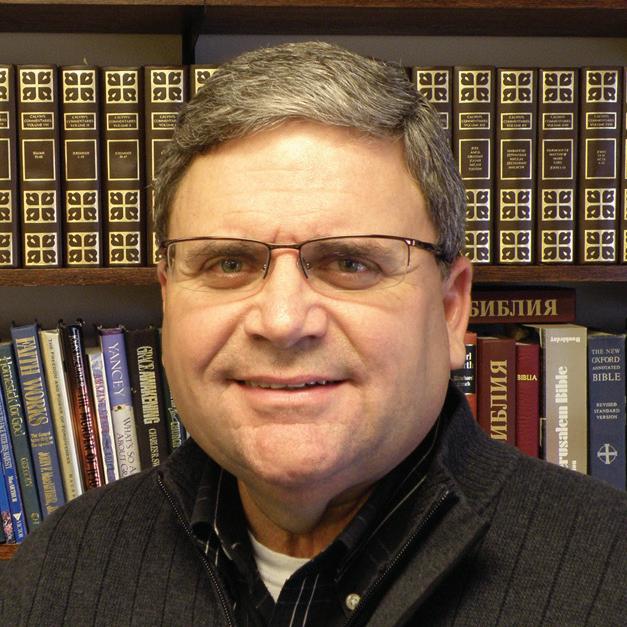
Nashville, Tenn. | No sabbatical. No help with counseling. No clear picture of what’s expected. In a new study, hundreds of former senior pastors say these were the crucial elements missing from the final churches they led before quitting the pastorate.
The study by LifeWay Research points to ways churches can encourage pastors to stay in the ministry, said Ed Stetzer, executive director of the research organization.
“Almost half of those who left the pastorate said their church wasn’t doing any of the kinds of things that would help,” Stetzer said. “Having clear documents, offering a sabbatical rest, and having people help with weighty counseling cases are key things experts tell us ought to be in place.”
LifeWay Research surveyed 734 former senior pastors who left the pastorate before retirement age in four Protestant denominations.
Trouble begins early, the survey indicates, with 48% of the former pastors saying the search team didn’t accurately describe the church before their arrival.
Most expected conflict to arise, and it did— 56% clashed over changes they proposed, and 54% say they experienced a significant personal attack. Yet nearly half (48%) say their training didn’t prepare them to handle the people side of ministry.
“Many seminary programs don’t even require courses on the people side—they’re focused on theology, biblical languages and preaching, which are important, but almost half of the pastors felt unprepared for dealing with the people they were preparing in seminary to lead and serve,” Stetzer said.
Though nearly two-thirds of those surveyed spent more than a decade as a senior pastor, they eventually moved on—52% to another ministry role other than senior pastor, but 29% to non-ministry work.
Those who leave vs. those who stay
Almost across the board, the former pastors report more negative views than current pastors who answered the same questions several months earlier.
LifeWay Research surveyed 1,500 senior pastors at evangelical and historically black churches in March 2015 and found about 1% leave the pastorate each year for reasons other than death or retirement.
Stetzer noted the two studies are not directly comparable. The initial study involved all evangelical and black Protestant churches, but only four denominations provided lists of former pastors for the follow-up survey.
In addition, the earlier survey was conducted by phone, while the former pastors were surveyed online.
“Though the populations aren’t identical, we do notice the responses from people who have left the pastorate are worse,” Stetzer said. “Either current pastors are painting a rosy picture that doesn’t fully describe reality, or those leaving the pastorate are in a less healthy position. Probably there’s truth to both of those.”
Current and former pastors agree the job is demanding: 84% of current pastors and 83% of former pastors say they feel on call 24 hours a day, while almost half of each group say the demands of ministry often feel like more than they can handle.
On other measures, however, the differences can be stark:
• 21% of current pastors vs. 49% of former pastors believe their church has unrealistic expectations.
• 35% of current pastors vs. 62% of former pastors report feeling isolated.
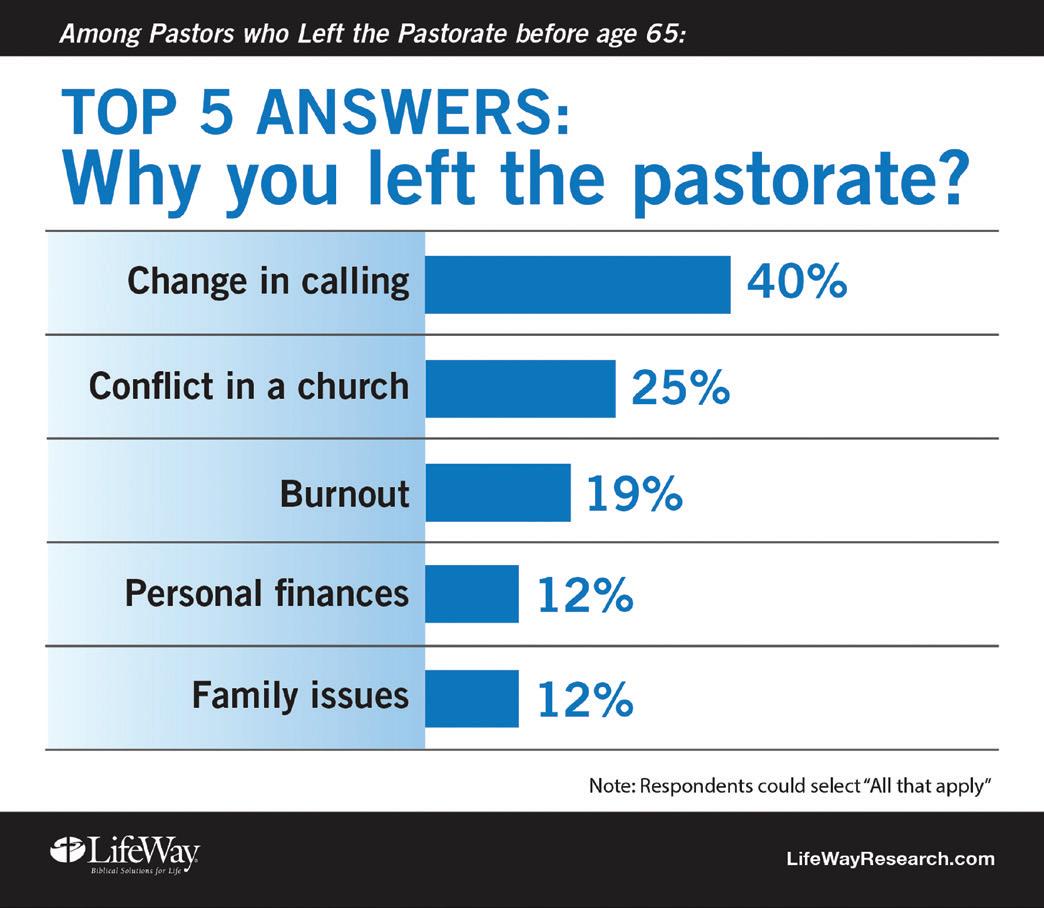
• 92% of current pastors vs. 61% of former pastors believe their congregation provides genuine encouragement to their family.
• 94% of current pastors vs. 74% of former pastors say they consistently protect family time.
Former pastors are also less likely than current pastors to report an enthusiastic spouse, to take a weekly day of rest, and to work at preventing conflict. They are more likely to worry about their family’s financial security and to frequently get irritated with people at church.
“When we see a number of items all looking a little less healthy, they can add up,” Stetzer said. “But many of the gaps are preventable. It’s going to take a combination of the seminaries, academia, denominational folks and even outside ministries putting their heads together and seeking God on how best to support pastors.”
– From Baptist Press
More than 5,000 people marched in the Chicago Loop on January 17 to protest abortion in the U.S. The rally on Sanctity of Life Sunday came ahead of the national March for Life on the Mall in Washington D.C.
“The March for Life Chicago is always familyfriendly, a joyful, positive, and loving event,” Illinois Right to Life’s Emily Zender told Christian Post. “Last year WGN said at times the march looked more like a block party than a protest.”
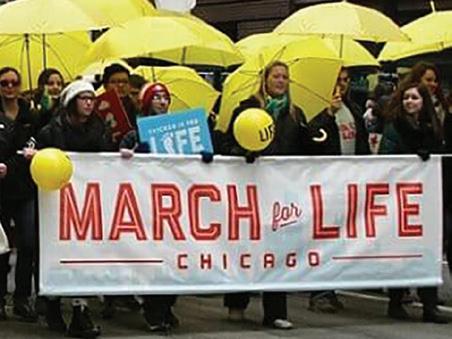
“Our state is run by abortion-minded people, our laws are the loosest in the Midwest, and we are aborting children at a rate of over 38,000 per year,” Zender said. “However, we have a world class pro-life movement here. And, despite all odds, for the past six years, Illinois has registered major pro-life achievements, such as the enforcement of a parental notification law, abortion numbers declining for the sixth straight year, [and] more pregnancy centers opening while abortion clinics are closing.”
In a new survey, Americans United for Life ranked Illinois 26th out of the 50 states. In the Midwest, Indiana, Kansas, Nebraska, and Missouri were in the top 10 pro-life affirming states.
The homosexual activist group Human Rights Campaign has targeted 58 Christian colleges and universities, including 23 with SBC ties. The report, “Hidden Discrimination: Title IX Religious Exemptions Putting LGBT Students at Risk,” asks education officials to increase reporting requirements for these schools because each was granted “exemptions of interest” relating to gender identity and sexual orientation.

Kim Davis, the county clerk from Kentucky who was jailed after she refused to issue marriage licenses to same-sex couples, attended the State of the Union address January 12. Davis said she was in the House of Representatives gallery as “an encouragement” to Christians who “want to stay and make a difference.” She was a guest of the Family Research Council with a ticket provided by Ohio Congressman Jim Jordan.
KIM DAVIS
– Christian Post, Baptist Press
Get breaking news in The Briefing online, posted every Tuesday at www.ib2news.org.
“…The reality is that, regardless of who wins the Powerball, it is the poorest in our communities that are guaranteed to lose.
Casinos and lotteries are marketed directly to those people who most feel compelled to get more money quickly, and therefore, have less hesitancy to spending part—or all—of their income trying to do so.
It’s not hard to see that gambling is a form of economic predation. Gambling grinds the faces of the poor into the ground.”
– Russell Moore (from russellmoore.com)

“Many economists have noted... that most lottery sales, and most lottery sales outlets, are actually in the most economically disadvantaged neighborhoods in American cities. Governments are targeting the most economically disadvantaged, knowing that they are most likely to buy lottery tickets because they feel they have very little to lose and because they are easily persuaded that there is at least a possibility, albeit a very small possibility, that they will all of the sudden strike it rich.
We need to understand that the state is putting itself in the position of economically exploiting its own citizens. As one major economist famously remarked, a lottery is basically a tax on the stupid.”
– Al Mohler (from The Briefing, 1/11/2016)
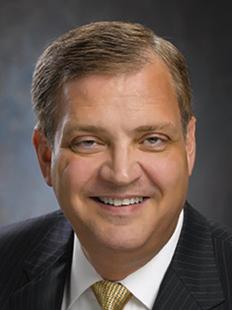
The weekend weatherman surprised us, not with his forecast but with an off-hand remark. Following a news story about the mounting Powerball jackpot that promised to make someone a billionaire, the an chor cheerleading for Lotto asked him, “What would you do if you won? Where would you be the next day?”

“I’d be right here,” he re sponded, “because I don’t play the lottery.”
Good for you, weather guy.
You’d expect Russell Moore and Al Mohler to sound off on the folly of the lottery. And Baptist pastors were certain to preach and blog on the sinfulness of gambling. But the TV meteorologist? And what about the law professor at a secular university who declared this massive state-run lottery “our national disgrace.”
Ultimately three winners split almost $1.6 billion in what a radio reporter called “a shot at the American dream.”
Really? The American dream once was owning your own home and being able to send your kids to college. But as that dream moves farther out of reach for many people, a new concept of the “dream” has been blown out of proportion by greed. Perhaps it’s greed that’s our national disgrace.
Many would nominate abortion as chief of our national sins, and it certainly qualifies. Or moral decline or child abuse or drug use or racism or gun violence or failing education or our inability to shut down terrorists. But what prompted Colorado attorney Salon writer Paul Campos to cite Powerball as such a disgrace is the impact it has on those who can least afford to play the “game.”
Americans spent $70 billion on state lotteries in 2014. That’s an average of $285 per U.S. adult. But only half of the adult population buys tickets, so the average amount spent by actual players is about $570. And, as Campos points out, 20% of the players buy 70% of the tickets. One in eight U.S. adults spends $1,800 per year on the lottery, including in equal proportions households making less than $15,000 per year.
Campos contends “what drives much of the spending on lottery tickets, and especially the spending by poor people, is not some lighthearted search for a cheap thrill, but genuine despair....The eagerness with which almost every state government exploits the desperation of its most hopeless citizens is a national disgrace.”
The Hispanic population in the United States will triple by 2050, and the church is already growing and thriving. Trinity has a unique opportunity to empower the next generation of Hispanic Christian leaders, to serve communities and churches in Latin America, and to expand its reach through its graduates.

I thank God for this opportunity, and I am excited about our future!
JARED E. ALCÁNTARA | ASSISTANT PROFESSOR OF HOMILETICSTEDS faculty member Jared Alcántara cares deeply about providing Hispanic students with opportunities to gain sound biblical and theological teaching, to grow in their ability to see needs and challenges in the world, and to participate in advancing the gospel ministry of reconciliation in partnership with local Hispanic churches.
Evangelicals are divided going into the presidential primaries, and few candidates are courting them. Will the Christian vote count at the ballot box?
If there is a nexus of evangelical politics so far in the 2016 presidential election, it may be the platform at the Liberty University arena in Lynchburg, Virginia. The conservative Baptist school founded by Moral Majority leader Jerry Falwell has hosted Democrat Bernie Sanders, Republicans Ben Carson and Ted Cruz (who announced his candidacy there), and most recently Donald Trump.

“Evangelicals love me!” Trump declared. “I’m big with evangelicals.”
With those words Trump reminded Christian and conservative voters of what didn’t seem possible a year ago: Polling shows the New York businessman and former reality TV star is the candidate more evangelicals favor than any other. Perhaps it’s because few candidates are overtly courting “the evangelical vote.” And while
Trump and Cruz are leaders among likely evangelical voters, the bloc is split.
Evangelicals’ influence was still a factor in the presidential election four years ago, when pundits wondered whether they’d get behind a Mormon, Mitt Romney, and whether he would miss their support if they didn’t.
With faith seeming to be less at issue in this campaign cycle, some surmise the waning evangelical influence wondered about in 2012 is a reality in 2016. “You cannot, if you’re a Republican [candidate] ignore the evangelical bloc, because it’s such a large percentage of the Republican voting electorate,” Andrew Walker, director of policy studies for the Ethics and Religious Liberty Commission, told the Illinois Baptist
But, “I think that our issues as a
share of the electorate have tragically become less influential,” he added. For example, when President George W. Bush won the Republican nomination and then reelection in 2004, he did so while supporting traditional marriage initiatives in the states.
Twelve years later, things have changed. The U.S. Supreme Court has made same-sex marriage legal nationwide, and evangelicals are struggling to find their identity at a time when their long-held positions on the issues are increasingly pushed to the cultural margins.
Illinois voters will head to the polls March 15, but the election’s first tests are just days away—Iowa caucuses on Feb. 1 and New Hampshire primary is Feb. 9. Will one candidate be able to unite evangelicals? Not yet.
Continued on page 8

Continued from page 7
The Trump factor
FOX News released a poll Jan. 9 that showed Cruz (33%) leading Trump (26%) among voters who call themselves “very” conservative. But among evangelical Christians, the poll showed Trump at 28% over Cruz’s 26%.
Another poll released Jan. 12 by The New York Times and CBS showed evangelicals supporting Trump by 42% over Ted Cruz at 25%.
The New York Times reported Jan. 18 it had interviewed “dozens of evangelical voters in 16 states” about their support for Trump. According to the Times, the voters called him “a decent man who simply wanted to get things done.”
They also believed “that his heart was in the right place, that his intentions for the country were pure, that he alone was capable of delivering to a troubled country salvation in the here and now.”
But Trump’s stump stop in Lynchburg raised more questions than it answered. Trump told the audience Christianity is under attack and as president he would defend it. “You look at the different places, and Christian ity, it’s under siege. We’re going to protect Christianity. If you look at what’s going on throughout the world—you look at Syria, where if you’re Christian, they’re chopping off heads.” That drew cheers. But when Trump quoted Liberty’s theme verse, “Where the Spirit of the Lord is, there is liberty” from 2 Corinthians 3:17, he said “Two Cor inthians” rather than “Second Corinthi ans” and drew chuckles from the studentaudience and guffaws on social media.
Washington Post religion writer Sarah Pulliam Bailey later pointed out “Two Corinthians” is a common British pronunciation and Trump’s mother is of Scottish origin. Trump describes himself as Presbyterian, but not as born again.
CNN’s Jake Tapper asked Trump if he regrets past remarks he made about his faith—that he has never asked God for forgiveness—and whether he believes those remarks hurt his chances with Christian voters.
Trump replied he has no regrets.
“I have a very great relationship with God, and I have a very great relationship with evangelicals, and I think that’s why I’m doing so well with Iowa,” Trump said.
“This would be hilarious if it weren’t so counter to the mission of the gospel of Jesus Christ,” ERLC President Russell Moore tweeted during Trump’s presentation. Moore later talked to CNN’s Erin Burnett about his sharp response to the candidate’s speech.
“I think the problem was this is someone who as recently as yesterday has said that he has nothing to seek forgiveness for,” Moore said, noting Trump’s marital history, involvement in the gambling industry, and use of racially charged language.
Last September, Moore wrote an op-ed piece for The New York Times that asked, “Have evangelicals who support Trump lost their values?” Perhaps the question now, a few months later, is exactly which evangelicals are supporting him?
“I would say that Ted Cruz is leading in the ‘Jerry Falwell’ wing, Marco Rubio is leading the ‘Billy Graham’ wing and Trump is leading the ‘Jimmy Swagger’ wing,” Moore told Roll Call for an article which asked, “Can Marco Rubio appeal to evangelicals?”

The article went on to explain the comments:
‘…meaning that Cruz has largely followed the classic Moral Majority model that was the face of the conservative movement—he has received endorsements from figures such as Focus on the Family founder James Dobson—while Trump ‘tends to work most closely with the prosperity wing of Pentecostalism’ which tends to believe that God would financially reward believers.”
“I personally question the so-called fanfare that Trump has among evangelicals. I sense, instead, that Donald Trump’s main appeal is to a segment of the population that is burnt out and feels disenfranchised by an American culture and economy that has seemingly passed them by,” said Moore’s colleague Andrew Walker. Walker called Trump’s appearance, and his apparent support by Jerry Falwell Jr., who has succeeded his late father, “embarassing.”
“It sets the maturing of Christian politics back and it alienates greatly younger evangelicals who are searching for a political identity as Christians, but know that what we saw at Liberty is not acceptable for them.”
Who will get their vote?
“You see definitely different strategies with candidates right now, and how they are lining up and trying to get the evangelical constituency,” Walker said.

For example, he noted, Cruz, a Southern Baptist, is reaching out to traditionalists who would have a “take back America for God” mentality, where as Rubio, a Roman Catholic, “speaks the evangelical language as well as anyone, but he’s not do ing it in a Christian America template.”
His “common good Christianity” sees it less as recovering Christian America, and more as bringing Christian values into the public square, in order to shape the public square for righteousness’ sake, Walker said.
That mentality may fare better with younger evangelicals who are cynical about moral majority politics, he said. While no less political than their elders, “they’re trying to do Christian politics less through the vein of ‘let’s take back America for God,’ and more as ‘let’s bring our Christian values into the public square for the sake of the common good.’”
Democrats, meanwhile, are making no overt approaches to evangelicals in Iowa, where there is a substantial bloc, or in New Hampshire, where there is almost none. Other than his Liberty University appearance, where Sanders, who is Jewish, was received politely if not warmly, Democrats have kept quiet on religion.
Hillary Clinton, a United Methodist, commented when she was First Lady that she had Bible verse cards in her purse. Her most recent comment on faith was visual rather than verbal: On Face the Nation last week, Clinton wore a necklace with a cross that also appeared to have symbols of other religions. The strategy for Democrats, and many Republicans as well, is to keep it ecumenical, or better yet, keep it quiet on religion.
“One of the things that is really important for Christians to realize is that we are both citizens of God’s Kingdom and our country,” Mark Quintanilla, history professor at Hannibal-LaGrange University in Hannibal, Missouri, told the Illinois Baptist. “In our political views we need to be searching for what God would have us to do.”
In Southern Baptist life, some leaders have spoken clearly about particular candidates. Others are saying simply, pray about it and do your duty.
The outgoing president of the South Carolina Baptist Convention, Tommy Kelly, has endorsed Cruz. The ERLC has critiqued Trump among others, while some of their staff have tweeted favorably about Rubio. Saddleback Community Church pastor Rick Warren has served on Rubio’s advisory committee, but has declined to endorse him.
President of the Billy Graham Evangelistic Association Franklin Graham is traveling to the capitals of all 50 states this year. His “Decision America Tour” urges Christians to vote and to elect candidates who “stand for biblical principles and biblical truth,” Graham told NBC.
Frank Page, president of the SBC Executive Committee, outlined the importance of Christian citizenship and participation in the election process in a recent Baptist Press article, citing Romans 13:37. “We know that God’s purpose through government is to aid the good and punish the evil…Assuming that the government fulfills its purpose, one reason for obeying our laws would be the fear of punishment. However, for Christians there is a more worthy motive, namely to be good citizens as part of being a positive Christian witness in society.”
Page said he is “aware that we are in the midst of one of the most interesting election cycles in our history. There is deep division in our country as to what needs to happen in the days ahead.” He urged Christians to be involved in the election process. “To relegate that responsibility to nonbelievers is irresponsible at best.”
Quintanilla cautioned Christians, “When we nominate or elect a candidate we must scrutinize which of them lives up to our Christian ideals. As nice as it is to vote our pocketbooks, I’m not sure that this should be our direction.” Analyzing comments from evangelicals in social media, he said, “It is concerning, the views people have and the lack of concern about our higher calling.
“We need to scrutinize the candidates and their views,” Quintanilla said. “As ambassadors of Christ, we are to be mindful that we are a reflection of God’s Kingdom.
“We are in the midst of one of the most interesting election cycles in our history.”
– Frank Page
O’Fallon, Ill. | People from elsewhere are confused when I say I am from Illinois, near St. Louis. For many, Illinois means Chicago. But our state is much bigger than that.
When James Eads built the first bridge across the Mississippi in 1874, downtown St. Louis was connected to Illinois as never before. We love our giant city to the north, but much of our state is closer to St. Louis.
If you live near enough to the ST-L, you know that our region is called Metro East. Let me tell you some of the Metro East story.
The Metro East is five counties on the Illinois side of the river. With 700,000 residents, it’s about onefourth of the population of metropolitan St. Louis, which comes in at 2.8 million. It includes places like East St. Louis, Alton, Belleville, Edwardsville, Columbia, Collinsville, Fairview Heights and, yes, my town of O’Fallon.
We are diverse, but sometimes segregated. For example, East St. Louis is 98% African American, while O’Fallon is 82% white.
We are old towns, but there is a lot of new growth. Many of us work downtown, but new jobs are being created on our side of the river as well. And Scott Air Force Base has a large influence here. We have poverty and wealth. We have struggling churches and churches that are growing rapidly. We have challenges and opportunities.
Our relationship with St. Louis is complex. We love the city, the sports teams (at least those who don’t move away!) and the many things to see and do there. But we feel forgotten by the Missouri side. We go to the west side of the river often. They rarely come to the east side. We love and need St. Louis, but we identify closely with our own towns and schools.

Our area has many Catholics, but Baptists have a strong influence as well. St. Louis was founded by French explorers and Catholic missionaries. About half of the people in St. Louis consider themselves religious because they have a Catholic background, but the other half don’t claim to be anything.
The first Baptist church in the state of Illinois was in a community called New Design. It was formed in 1786 near the Metro East city of Waterloo. Colonists traveled from Virginia and Kentucky to that spot near the Mississippi River. Among their number were two preachers, James Smith

and David Badgley, who preached at New Design. The colony had more than 200 residents by 1800 and was the largest settlement in Illinois at the time.
Since that day, Baptists have impacted the region with the message of the gospel. Many of the strongest churches in IBSA are in Metro East and there are numerous new church plants here.
When the Southern Baptist Convention comes to St. Louis this summer there will be many Metro East Baptists in attendance. We will work and host many of the events that precede the convention. Our churches are planning to host and participate in Crossover events during the weekend before the convention. And my wife is president of the Ministers’ Wives luncheon that will be held on Tuesday of the convention week. She will be very busy!
Okay, we get it. Metro East isn’t Chicago. It isn’t even St. Louis, exactly. But it is a great place to live and we have a great view of the Arch. And God is at work here. And that makes it pretty great!
Doug Munton is pastor of First Baptist Church of O’Fallon. (Illinois, that is, not the one on the Missouri side of the river.) This is part of a series of articles on the Illinois side of the 2016 Southern Baptist Convention meeting in St. Louis.

What do you get when 5,000 or more Southern Baptists descend on your town for a week? Outreach partners!
Crossover is the SBC’s concentrated evangelistic effort in the days just before each Southern Baptist Convention. Often, it’s a focused outreach day on the preceding Saturday. Churches from all across America bring workers and witnesses to meet needs and share Christ.
And local churches and new church plants find a ready supply of helpers, if they will simply put them to work.
Matt Burton, associate pastor of First Baptist Church of Mascoutah says they have a “two-fold Crossover plan.”
• Tuesday through Friday of that week we will be doing a “Mascoutah Changers” where our students will use the skills they’ve learned in four years of World Changers to make an impact on the community. Included in our light construction or clean-up projects will be evangelism training and prayer walking.
• Then on Saturday, the actual Crossover day, the church is planning a block party. We will host a health fair offering such things as school health exams, pregnancy screenings, blood pressure checks, eye exams, etc. And during the day, we will separate out adults from children and give each a clear gospel presentation with an intentional follow-up plan, Burton said.
For Metro East churches, start planning your strategy. Either host a Crossover event or make plans to support another church with theirs. Partnerships formed now can last for years, and advance the gospel in many communities.
For churches outside Metro East, now is the time to make contact with a church in the St. Louis region and form a partnership. Churches will offer different types of ministry events, depending on the demographics and needs of their communities.
Illinois Crossover projects are listed on the Metro East Baptist Association website—meba.org/crossover-st-louis-2016. Most of the projects are scheduled for Saturday, June 11, but some, like the weeklong construction initiative in Mascoutah, start earlier.
Go to meba.org and click on “Crossover St. Louis 2016” in the right column for more information, or contact the association at (618) 624-4444.

Springfield | Sign-ups are now open for two popular missions initiatives for Illinois students.
CMD registration open now
participant is $15, which includes a T-shirt, lunch, and some ministry supplies.
Children’s Ministry Day begins at 9:30 a.m. with orientation, and concludes at 3:30 p.m. following a celebration service at each site.

GO Team deadline March 1
For older students, IBSA’s GO Teams are accepting applicants for four international summer mission trips. In 2016, GO Teams will travel to Italy, Haiti, Jamaica and Guatemala.

Children’s Ministry Day for kids in grades 1-6 is Saturday, March 12. Leaders can register their groups for a project at www.IBSA.org/kids. This year, volunteers can choose from 14 sites: Bourbonnais, Bridgeport, Carbondale, Carlinville, Carrier Mills, Chicago, Crystal Lake, Decatur, Hamel (on March 19), Mt. Vernon, Peoria, Quincy, Rockford and Springfield.
Several hands-on projects are planned at each location. Projects will close once the maximum number of registrants is reached. The cost per
“We believe that one of the best ways to help students develop a missionary heart is to give them an opportunity to leave their comfort zone and put their feet on the international mission field,” said IBSA’s Rex Alexander. “GO Teams give students that opportunity.
“We see God begin to create a passion for the lost and a heart for the nations that will stay with them throughout their lives.”
In Guatemala, students will work with deaf children, teens and adults, doing Vacation Bible School-type activities in schools for
those with special needs. VBS is also the focus of the Haiti and Jamaica trips, where students will work alongside local churches. The project in Trieste, Italy, is a new GO Team opportunity for 2016. The team will partner with a local congregation for a school painting project and kids camp, and also will prayer walk the community and work
to build relationships on behalf of the church.

The GO Team application and information about each project are available at www.IBSA.org/students.

The application deadline is March 1. For details about all upcoming missions opportunities, contact IBSA’s Church Resources Team at (217) 391-3138 or go to www.IBSA.org/ missions.
offers a heartfelt
Massive cleanup is underway in two states after December floods. Illinois teams put their backs—and hearts—into the work.
Arnold, Mo. | When the Illinois Baptist Disaster Relief (DR) team arrived at the home of an elderly Missouri couple, they were initially received with some hesitancy.

“The couple was tormented with questions about why God did this to them,” said Debbie Porter, a member of First Baptist Church, Galatia, and a IBSA Disaster Relief volunteer for the last 11 years. “Also, other groups had already visited them and left much
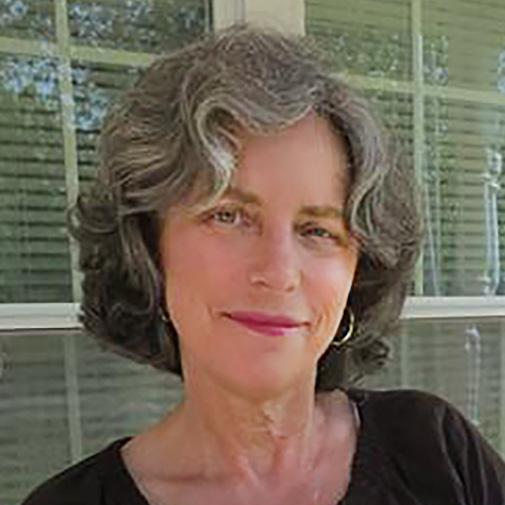
of the work unfinished. They thought we would be there for an hour and do the same, but we stayed until the job was done—nearly 24 work hours.”
The couple’s home was one of thousands impacted by Christmas floodwaters in communities like Arnold, located just south of St. Louis, as well as in Illinois and throughout the Midwest. Porter and her husband, Butch, were part of a team of 13 DR volunteers from Galatia, Carlyle,
Eldorado, Carterville and Hamilton County who answered God’s call to help Missouri homeowners with flood damage.
The team spent a week doing “mudouts,” a process of debris removal, drywall removal, power washing and sanitizing homes. Equipped with a tractor and a homemade platform, Porter said the team was able to pull out even the heaviest and most water-soaked items.
“We went to the home of a retired Baptist minister who has diabetes,” she said. “The guys removed all of his Bibles and his entire ministerial library,
Continued on page 12
Hope Floats Disaster Relief volunteers from Illinois joined the callout on both sides of the Mississippi. During their mudout work in Missouri, a team from First Baptist Church of Galatia (Illinois) reported leading five flood victims to faith in Christ.


Kincaid, Ill. | Disaster Relief volunteers from Capital City and Metro East Associations came to the aid of flood victims in Central Illinois after holiday storms brought up to 10 inches of rain to the area. Volunteers worked in the rural town of Kincaid, about 30 miles outside Springfield, where nearly 40 homes suffered flood damage. Flood recovery work included ripping out floors and walls, pressure washing everything below the flood line, and spraying with mold repellent. Teams from Harrisburg First and Williamson Association also worked in homes in Alexander and Pope Counties, located in the southern tip of the state.
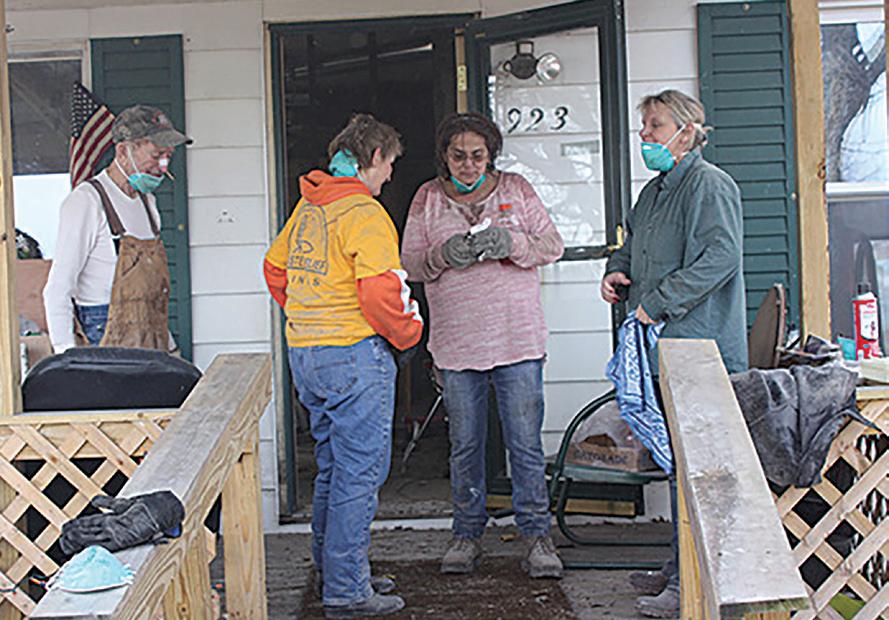
Continued from page 11
as well as six or seven desks and big filing cabinets, all ruined.”
Along with Illinois, DR volunteers from Kansas, Kentucky, Tennessee, Texas, Michigan, New Mexico and Nebraska have joined the cleanup effort. Dwain Carter, director of Disaster Relief for the Missouri Baptist Convention, said though the floodwater has receded, the need is still great.

“Since Jan. 1 we’ve had 362 accepted work orders and we’ve completed 202,” Carter said. “We’ve had teams come from multiple states into two different areas of St. Louis, some doing mud-outs and some cooking for the Red Cross.”
But though the work has been messy and difficult, Porter said the Lord is working through the muck.
“We meet and pray with the homeowners, but we also come across people and we’re able to tell them about what we’re doing,” she said. “We are staying at First Baptist Church, Arnold, so we get to tell how the church is providing for us and how it’s a great church to get plugged into.”
Porter said working with DR is both an honor and a blessing and she prays that other Illinois Baptists would consider going through the training and join this important and powerful ministry.
“When we come back to our home church from a mission like this, we are enthusiastic and recharged and eager to recruit others to join with us the next time,” she said. “I want to encourage people to not let age or health restrictions stop them.
“Get the training and go where there is a need. It may be one of the greatest joys in your life. We work around medical issues, taking breaks when we need breaks and we don’t push beyond what we know we can do. There is power in numbers.”
As the work continues and more DR teams come to Missouri to help, Carter said all Southern Baptists are able join in the cleanup effort through prayer.

“We need prayers for safety,” he said. “People have been working here for weeks and are getting tired and they need energy and strength. Also, one of the greatest things is that we’ve had at least five people that I know of accept Christ during this time. Please pray for more opportunities to share God’s love.”
For more information about IBSA Disaster Relief, visit www.IBSA.org/dr or call Rex Alexander, IBSA Disaster Relief Coordinator, at (217) 391-3134.

This is the time of year when millions of Americans tune in to hear our President give his State of the Union address. He gives his assessment of our national security, our priorities, and our vision for the future.
This is a tricky word—“our.”
For these days it seems as if America can hardly find “our vision” for anything, much less the future. Our nation is deeply polarized around our political parties and totally unrelenting in our commitment to fighting against one another. Despite growing national security threats, violence erupting, escalating racial tensions, the devaluing of human life, and economic insecurity, we find ourselves unable to agree on almost anything.
What’s especially alarming to me, serving as the president of the Southern Baptist Convention, is that we fail to realize how the spiritual health of our nation affects the state of our union. As our spiritual lives go, so goes the nation.
It wasn’t meant to be this way in America. One of the reasons our founders so cemented JudeoChristian principles in our nation is because they were skeptical of men’s ability to govern themselves. America would be a nation first subject to God – and subject to His higher law – so that our respect for our creator would provide a baseline for our “more perfect union.”
We would at least be united around important things when we couldn’t find unity among many things. Where are the leaders in America today that can bring people together, rather than separate us?
For our founders knew that the moment we no longer saw ourselves subject to God—and to His higher law—that we would begin to fight over everything in an attempt to gather God’s authority for ourselves.
When our political leaders and the people of America lack fear of God, we become subject to that awful temptation we find in Judges 17:6, “to do what is right in their own eyes.”
Since the beginning of time, we have been tempted to be like God. And when a nation’s leaders and her people lose their fear of God and replace it with their own authority, we begin to live in a kind of chaotic unity—not with one another—but in an unholy union with that very sin that brought sin to earth in the Garden of Eden. Aside from all of the others, we fail to follow the very first commandment given to us through Moses, “thou shalt have no other gods before me.”
In America, we have replaced God with government and granted politicians the ability to circumvent God’s higher law at will. It is our fault as citizens because we are a country that elects our leaders.
While we profess to remain “one nation under God”—and while we have inscribed such belief on our currency and in marble all over our capital—we seem to be more interested in “God bless America” than in actually being “one nation under God.”
So, what is the actual spiritual state of our union?
It is very simple.
We need to repent, come back to God, and put our trust in God alone. America needs a Great Spiritual Awakening.
Now is the time to elect leaders who fear God and we need to learn to fear God again ourselves. We need not say phrases like “God Bless America” because they are our tradition. We need to speak them with a holy reverence for God’s authority, for without God there never would have been an America at all, and without God at its center America would not exist as it has.
I’m trusting that 2016 is a year where we apply a simple verse from 2 Chronicles 7:14, “If my people, which are called by my name, shall humble themselves, and pray, and seek my face, and turn from their wicked ways; then will I hear from heaven, and will forgive their sin, and will heal their land.”
Ronnie Floyd is serving his second one-year term as president of the Southern Baptist Convention. He is senior pastor of Cross Church in northwest Arkansas. This column first appeared on his blog, ronniefloyd.com.
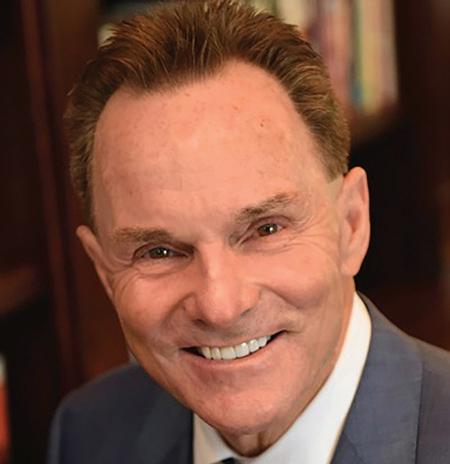
According to U. S. Census data, more than one-fourth of all adults have never been married. Another 6% are widowed and 12% are divorced or separated.
Most churches minister well to adults who are married, but do we also acknowledge the great value and importance of that “invisible” multitude of unmarried adults? Here are 10 tips for loving and ministering to single adults who are members or guests at church.
1. See each single adult as a valued individual, ready to meet God and serve Him, with or without a boyfriend or girlfriend, fiancé, spouse or three kids in tow.
2. Train greeters at church. Comments such as “Are you here alone?” or “Is it just you?” may give the implication that he or she is incomplete.
3. Acknowledge single adults as full-fledged members. Plug them into leadership and ministry roles to fit their spiritual gifts.
4. Involve singles in small groups. Many singles enjoy a small group with similar marital status and life stage. Most singles I interviewed, however, are involved in a small group of both married and unmarried people. Offer choices.
5. Encourage them to make the most of their singleness. Recognize the unique gifts they bring.
6. Unless he or she personally requests it, don’t set them up with your cousin or recommend online dating services.
7. Intentionally encourage single adults to participate in church events and ministries, such as Vacation Bible School and church dinners. Include them in your church traditions.
8. A church may provide some quality, uniquely single events targeted to specific life circumstances. Examples: a single parents Bible study, singles mission trip, young singles retreat, single adult outreach event, mature singles’ Christmas project.
9. Connect with single adults personally as a friend. Encourage them. Invite them to dinner or dessert.
“If you work hard and persist long enough, the congregation that now considers you young and naîve, will one day think of you as old and uncool.”
10. Be constantly aware of single adults all around you at work, in the grocery line, at the ball game, in your neighborhood. Invite them to your church.
Diana Davis is an author and minister’s wife. This column was originally published at BPNews.net.
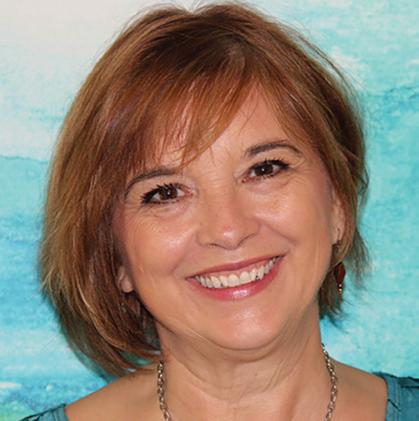 DIANA DAVIS
DIANA DAVIS
Where are the leaders in America today that can bring people together, rather than separate us?
Meet: Jeff Deasy
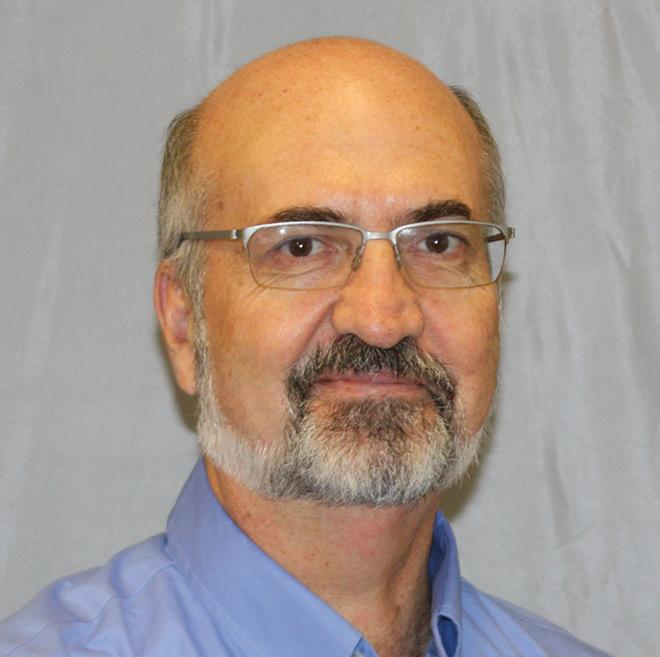 Associate Executive Director IBSA Church Cooperation Team
Associate Executive Director IBSA Church Cooperation Team
Family: Kathy and I have been married 36 years. We are originally from Tennessee. We have two children and four grandchildren. Our daughter, Jackie, lives in Henderson, Tenn. with her husband, Brian, and their children, Kyle and Amelia. Our son, Justin, lives in Los Angeles with his wife, Holly, our other two grandchildren, Brandon and Dylan, who was born in December.
Favorite thing about church: As a kid, my favorite thing was RAs. Now I enjoy Bible study and the music. Kathy and I are both musicians. I led the music department at a seminary in Recife, Brazil.
Service abroad: We served as IMB missionaries for 20 years, starting in Brazil, then in Tanzania, and concluding in Kenya.
You’ve only been back in the States for a month, but any memorable moments as an IBSA staffer yet? So far, the warm welcome I have received from everyone.
Favorite movie: Star Wars
We usually ask about favorite restaurants: A highlight for us after living oversees is all the different restaurants we can go to.
Favorite Scripture: Psalm 91, God is our Protector: “The one who lives under the protection of the Most High dwells in the shadow of the Almighty.”
Mary Akers, 94, of Wayne City died December 10. She was a homemaker and wife of the late Rev. Archie Akers. Akers served as pastor’s wife in several churches in Illinois, including Calvary, Joliet; Crystal Lake First; Graysville First; Keenes Missionary; Martinsville First; Old Du Quoin; and Smith Chapel, McLeansboro. She is survived by four children, eight grandchildren, 12 great-grandchildren, and three great-greatgrandchildren.

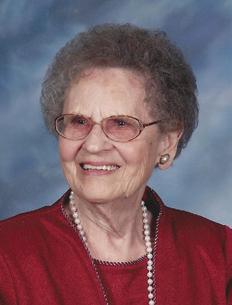
Donald Beard, 88, of Jerseyville died December 7. Beard was a member of Calvary Baptist, Alton, and had served as an IBSA Disaster Relief leader and volunteer. He is survived by his wife, Helen; three children; seven grandchildren and numerous great-grandchildren. He was preceded in death by his son, Charles.
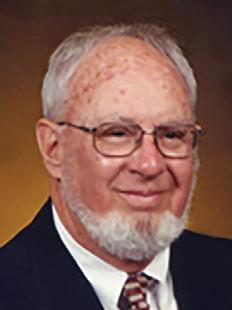
Eugene Phillips, 83, of Ocala, Fla., died December 10. Phillips pastored several churches in Illinois, including Mt. Carmel First; Third Granite City; Metropolis First; Woodland, Peoria; and Wayne City Baptist. He and his wife, Peggy, were married 62 years.
Gordon Lantrip, 82, of Marion died January 3. In 1961, Lantrip came to the Baptist Children’s Home in Carmi to become the assistant administrator. After leaving to puruse a Masters degree in social work, he returned in 1968 as director of social services. In 1971, he became the resident director and held that position until 1981. He is survived by his wife, Shirley; three children; seven grandchildren; and seven great-grandchildren.
Carla Monroe-Boyd, 70, died December 27. She served more than 25 years with Baptist Children’s Home and Family Services, beginning as a houseparent and retiring as director of BCHFS’ maternity and adoption program.
Monroe-Boyd is survived by her daughter Michelle (Tony) Monroe Heard; two grandchildren; and five siblings.
A celebration of her life will be held February 13 at 3 p.m. at Central Christian Church in Mt. Vernon.
First Baptist Church, Elizabethtown, recently honored their pastor, Ed Lafferty, for 30 years of service at the church. The congregation celebrated Lafferty and his wife, Kay, (pictured above at right) in October, designated in many churches as Pastor Appreciation Month. Lafferty started filling in as pastor in 1985, according to a story in the Hardin County Independent newspaper, not planning to stay. “Evidently God’s plan was different,” the paper reported.
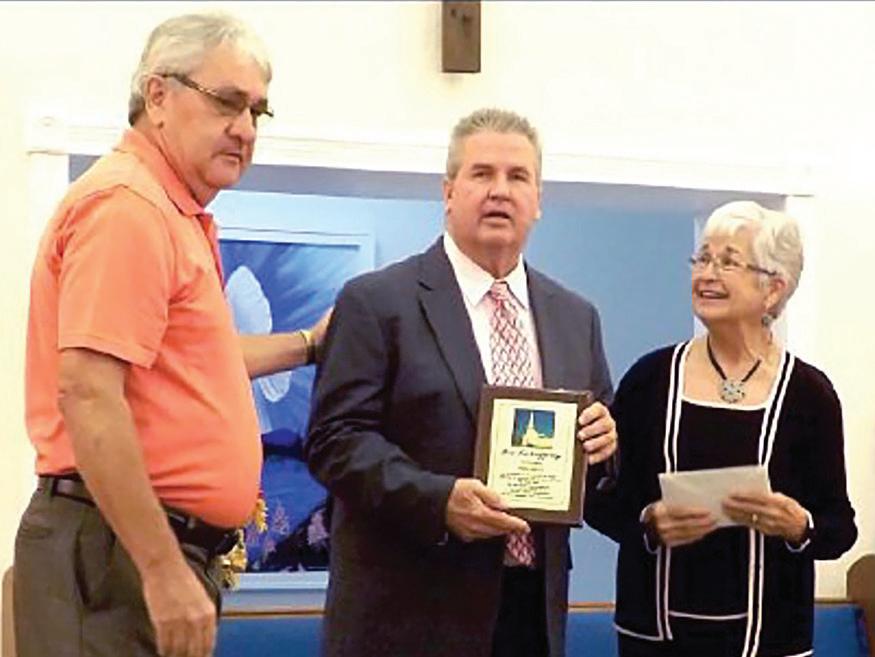
December brought commencement ceremonies for Southern Baptist seminary students, including at least two Illinois Baptists. Matthew Kountz of Belleville graduated from Southeastern Baptist Theological Seminary with a Master of Arts in Church Planting. Karla McGehee of Lockport received a Master of Theology degree from New Orleans Baptist Theological Seminary.
PAID ADVERTISEMENT
First Baptist Church of Farmington, Missouri is seeking a full-time associate pastor for discipleship and administration
Resumes or inquiries may be sent via e-mail to: Per-sonnel Committee, fbcfarm@sbcglobal.net or via USPS to 210 North A Street Farmington, MO 63640.
North Side Baptist Church, Fairfield, seeks a full-time pastor. Send resumes to: North Side Baptist Church, Attention: Wm. J. Vaughan, P.O. Box 75, Fairfield, IL 62837, or ffnsbcpastorsearch@yahoo.com.
Blooming Grove Baptist Church, located three miles from McLeansboro, seeks a full-time pastor. For more info, call (618) 6432706 or send resumes to: Pastor Search Committee, 7709 Blooming Grove Rd., McLeansboro, IL 62859.
First Baptist Church, Raleigh, seeks a bivocational pastor. Must be strong in mission outreach for the community and surrounding area of Saline County; must agree with The Baptist Faith and Message and support the Cooperative Program. Send resumes to sba.direct@ gmail.com.
Contact
February 16
What: A free retreat for IBSA pastors and wives
Where: Streator Baptist Camp Information: IBSA.org/church_health
February 20
Church Technology Conference
What: Learn how to use technology for outreach and for corporate worship.
Where: IBSA Building, Springfield Information: www.IBSA.org/worship
February 27, March 5, 19, April 2
VBS Clinics
What: Training in multiple age groups and focus areas
Where: Feb. 27: Chatham Baptist; March 5: Second, Marion; March 19: Pleasant Hill, Mt. Vernon; April 2: Broadview Missionary Information: www.IBSA.org/kids
March 4-5
Student Ministry Resource Conference
What: Training for all leaders who minister to students in grades 6-12
Where: IBSA Building, Springfield
Cost: $10 per person
Information: www.IBSA.org/students
March 10
iConnect: IBSA/Pastors Meet-Up
What: Introduction to IBSA staff, ministries, training and opportunities, for pastors and church staff members
Where: IBSA Building, Springfield
Contact: AlexisDumire@IBSA.org
March 12
Children’s Ministry Day
What: Hands-on mission projects for kids in grades 1-6
Where: 14 locations across Illinois

Cost: $15 per person Register: www.IBSA.org/kids
March 18-19
Ministers’ Wives’ Retreat
Theme: Where do I fit in this crazy world?
Where: IBSA Building, Springfield
Contact: BarbTroeger@IBSA.org
Information: www.IBSA.org/women
Biblical Training for Today’s Culture
Saturday, February 20, 2016
I don’t understand why you don’t like it when people properly manage their credit cards and pay them off every month. By doing this, you pay no interest and in my case I even got a free trip to Europe from using my credit card. Please explain.
AI truly doubt that I can explain it to your satisfaction, but here goes. First, the credit card company did not give you a free trip to Europe. They’re not going to lose money on transaction after transaction, year after year. The fallacy is that you feel like you’ve outsmarted a multi-billion dollar company that studies human behavior at incredible levels. You maybe, possibly came out ahead against them during that particular calendar year, but even that’s debatable.
Over the course of your life, you’ll spend more when using credit cards as opposed to cash. An example would be McDonald’s. When they started taking credit cards years ago, they found that the people using them spent 47% more.
QMy husband and I would really like to buy a house soon. Right now we have about $10,000 in debt on a boat along with ongoing stable bills, food and upkeep for our three horses. What price range of houses should we look at in our situation?
AHomeownership is a great goal, but first you two need to clean up your debt and build an emergency fund of three to six months of expenses. After that, I want you to save up enough for a down payment of at least 10-20%. When buying a home on a mortgage, I always recommend the monthly payments be no more than 25% of your monthly take-home pay on a 15year, fixed-rate loan.
Now, let’s get to the other issues. You have some things in your life that are pulling at you financially. At some point, you may have to take a long look at the situation and ask the hard question, “What is more important to me: horses and boats or home ownership?” Getting rid of that boat, or finding new homes for one, two or all of your horses, would bring in some cash to put toward your debt and cut down on at least some of the animal maintenance.
AM
3:30 PM Featuring Dr. Wayne Grudem Dr. Grudem is Research Professor of Theology and Biblical Studies at Phoenix Seminary in Arizona and taught at Trinity
Should Christians get involved in politics?
What is the biblical purpose of government?
Should judges and the courts hold the ultimate power in a nation? Does the Bible support some form of democracy?
What does the Bible teach about social ethics?
In a good way, you are very unusual. You’re not playing over in the stupid zone like most people who use credit cards. But both me and the credit card companies have found that, on average, your behavior would put you in a class of less than one-half of one percent of their customers. Can 0.5% of people handling snakes manage not to get bitten? Sure. But that doesn’t mean I’m going to start recommending snakes!
Of course, you can always buy a lot less in house. But what it really comes down to is what’s most important to you. That’s the big question, and it’s one that only you can answer.
Financial advisor Dave Ramsey is a prolific author and radio host.
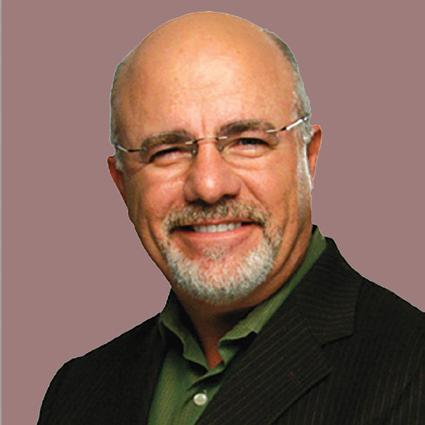
Does Scripture REQUIRE cultural engagement?
What is the free market system?
Location: Portage Park
Reaching: English-speaking, unchurched families
Characteristics: This north Chicago community has a blend of new, young families and families with deep roots in the neighborhood. There is a high openness to historic Christian groups, and the area is experiencing some gentrification and urban renewal.
Prayer needs: Pray for God to call a church planter with a vision to serve and engage the families of Portage Park; for continued provision through good jobs for the families in the neighborhood; and that God will prepare people in the community to receive and respond to the gospel.

“For the Son of Man has come to seek and to save the lost.” (Luke 19:10, HCSB)
There are seasons in life when I relegate evangelism to a complex program, rather than personal involvement with those who are lost. Jesus’ encounter with Zacchaeus reminds me of the necessity to meet people where they are. Like Jesus, I need to engage people who feel hopeless, burdened by sin’s guilt, and rejected, meeting them with truth, love and mercy.
A

pinterest.com/illinoisBaptist

During the 40-day period prior to Easter, some Christians give up something they enjoy as spiritual preparation for the Resurrection celebration. They “sacrifice” chocolate or soft drinks or TV. Instead of sacrificing fun, why not make this Lenten season a sacrifice of time? Consider urging your congregation to give more time to prayer. Specifically, prayer for the salvation of lost people.
Gather names. Ask worship attenders to identify people in your community who need a personal relationship with Jesus Christ.
Conflict is a necessary part of spiritual growth and maturity, in our personal lives and our churches. When God’s spirit invades an individual life, it does battle with the flesh (Mark 3:27). God loots the strong man’s house, setting us free. Even the church experiences a battle between the flesh and God’s Spirit at times.
The good news is that conflict often brings a renewal of a church’s Christcentric mission. As leaders, we shouldn’t fear it; rather, we can create a church culture that accepts conflict and educates the congregation to emerge from it stronger. Train leaders in these areas:
1. Personal vs. organizational conflict. Train leaders to understand that personal conflict focuses on relationships and reconciliation, while an organizational conflict’s focus is on the church’s mission, values, attitudes, behaviors and systems. If we fail to resolve personal conflicts, they can escalate into organizational conflicts, an indication that a church’s systems are broken.
Pray in worship. Add a salvation-prayer component to your worship services. Give worship attenders opportunity to pray for lost people, silently or aloud.

Schedule special prayer. Plan an evening or Saturday event with nothing but prayer for salvations.
2. Loss of relevance generates conflict. Wise leaders ask, Is the conflict a result of a congregation drifting away from the church’s mission? Is it a result of a clash of values, attitudes or behaviors? Does the conflict have a biblical component?
KEVIN CARROTHERSThe challenge for me is to not allow the routine of life make me neglect those who need eternal life. Mission trips help me reorient myself to gospel needs at home and in my community. During these trips, my daily schedule is typically meeting people in their homes, at their jobs, on a college campus or in a park. On my first international mission trip I remember sitting in the home of a retired Bulgarian doctor and talking about the Bible and Jesus. He gladly accepted my invitation to visit the Roma church where our team was speaking nightly. My hope is that the seeds of the gospel led to salvation in Christ.
In my own local mission field, I have found volunteering in the schools and coaching kids in recreational sports have opened doors to meet people, build relationships and share my faith in Jesus.
PRAYER PROMPT: Lord, help me to meet people where they are so that they may hear the gospel. Amen.
Kevin Carrothers serves as pastor of Rochester FBC and president of IBSA.
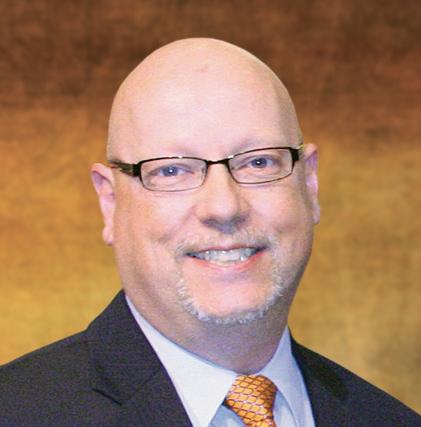
Visit the pray-ees. During the two weeks before Easter, sit down with every person you’ve been praying for. Share the gospel. Invite them to church.
Plan evangelistic services. On Palm Sunday, Good Friday, and Easter, tell how to become a believer in simple terms. Extend an invitation at
3. Choose leaders carefully. Make it clear to them and to the congregation that leaders are not representatives of congregational factions. To support leaders, establish robust governance policies that guide the church on how to handle conflict, avoid conflicts of interest and nepotism, and provide lines of responsibility and authority.
4. Develop leaders who steward the church. Two questions to ask when making a major decision are, “Will this decision advance the Christ-centric mission of the church?” and “Is this decision biblical?”
5. Know your community, its changes, population patterns, growth, and decline. How is the community changing? What are the new opportunities for ministry? Ask for a demographic study from IBSA.
Praying for salvations is one of the “5 Building Blocks for Kingdom Growth” featured at the 2015 IBSA Annual Meeting. Read about all five commitments at IBSA.org/Five and in the Spring 2016 issue of Resource at Resource.IBSA.org.
Godly leaders know conflict is an opportunity to glorify God and become the congregation that Christ is calling them to be.
Sylvan Knobloch is IBSA’s director of church health and leadership.
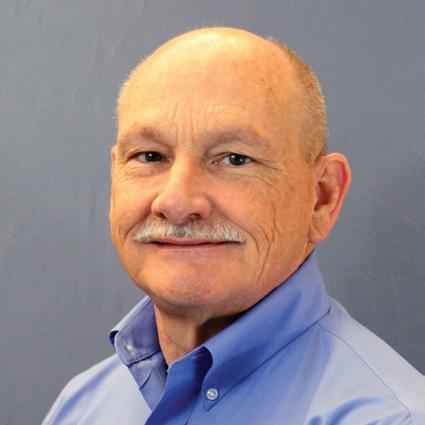 SYLVAN KNOBLOCH
SYLVAN KNOBLOCH